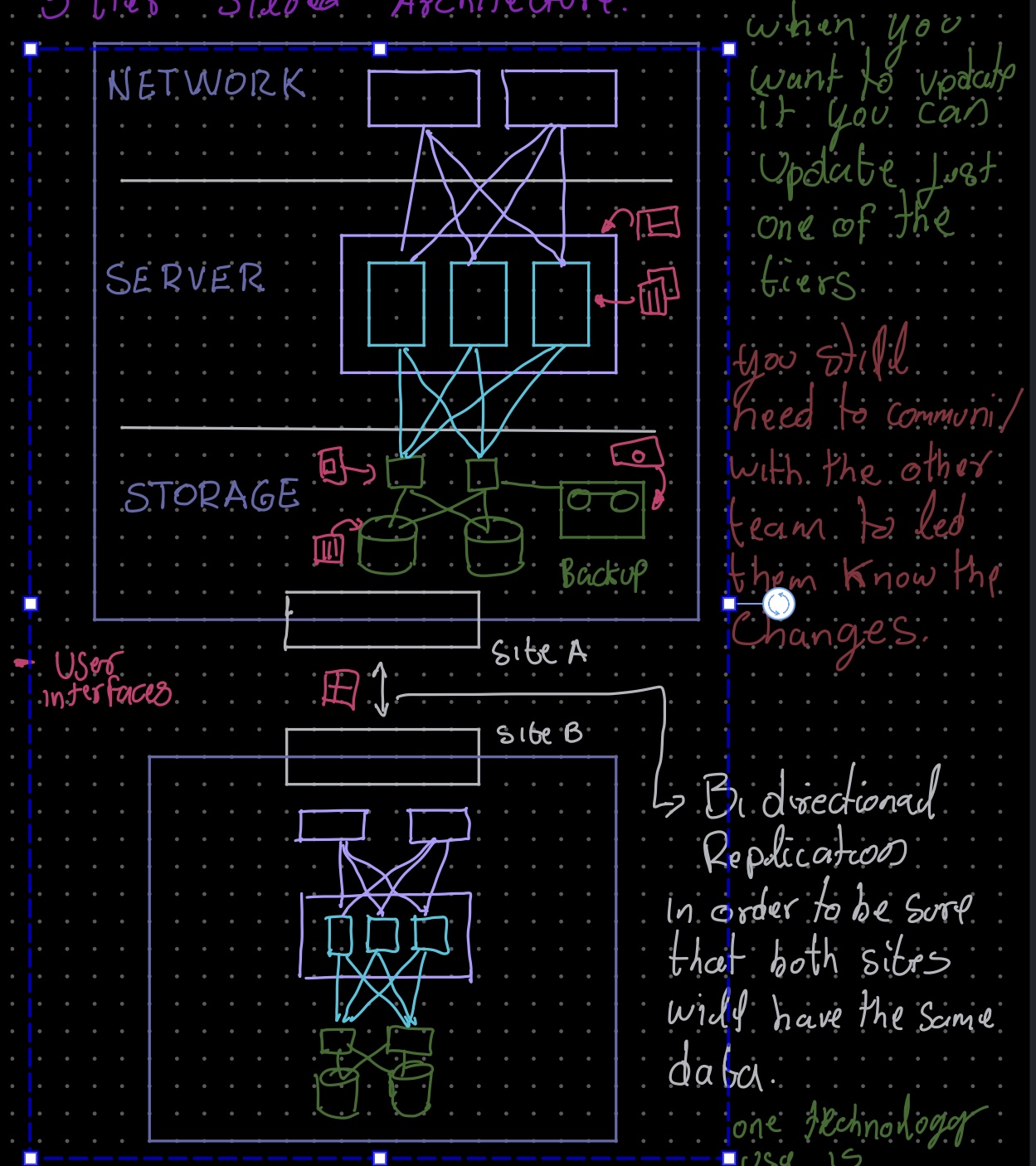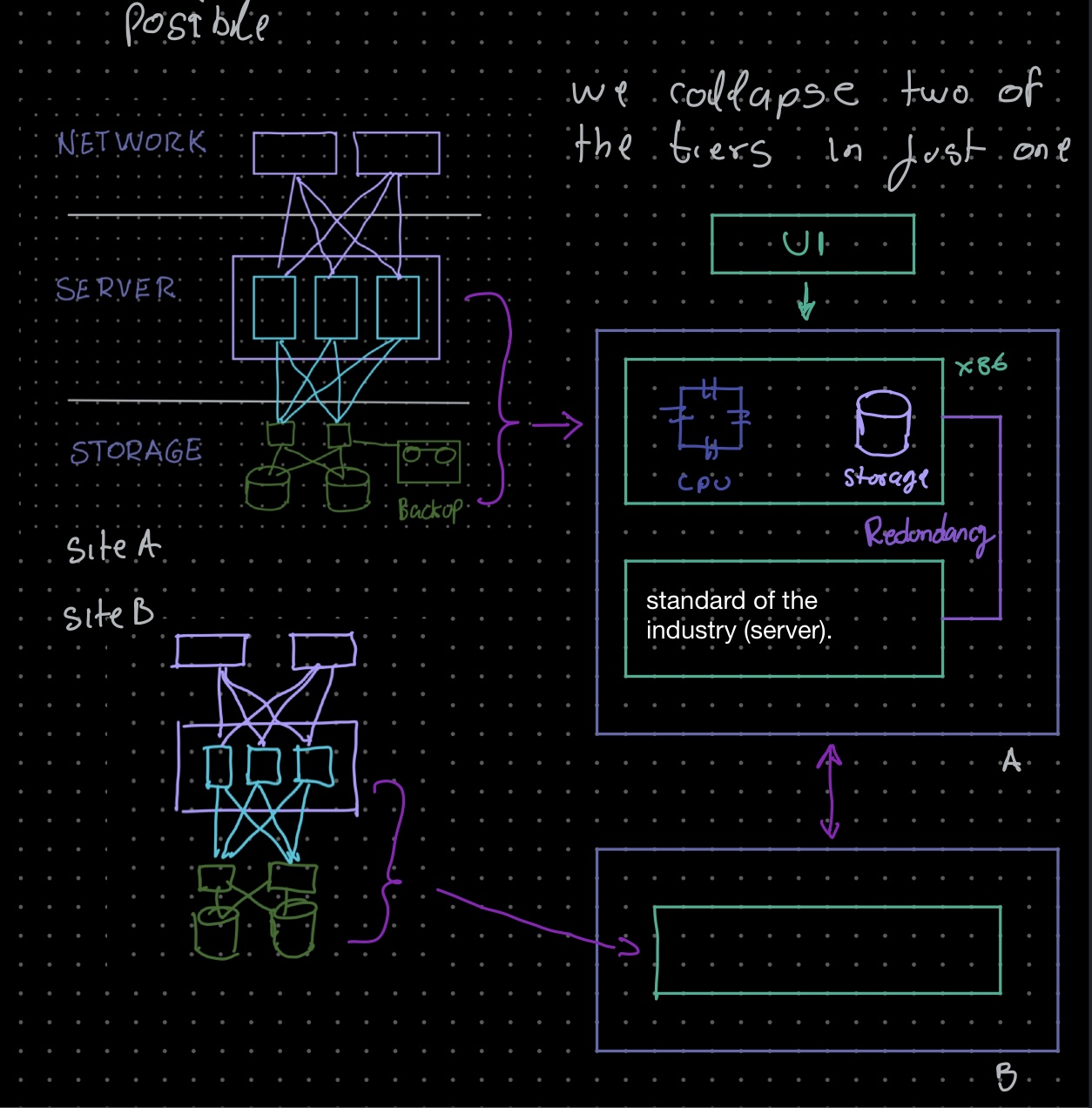What is Hyperconverged infrastructure?¶
A good solution for private clouds
Hyperconverged infrastructure or HCI combine:
- Computing
- Virtualization
- Networking
- storage
All in a single cluster, this provides cloud-like scalability.
Components¶
There are two major components in these systems
- Hypervisors ( VMware, Hyper-v, KVM, Citrix, etc )
- Storage Controllers ( Stonefly, etc)
Available in which forms?¶
They are available in two main forms
- Fully Integrate Hardware appliances (hardware and software same manufacture)
- Standalone Software
How is it work?¶
First, a standard or common architecture
Standard 3-tier "siloed" architecture¶

We have some points to remark:
Storage tier
- It will contain:
- Storage
- controllers or NAS switch
- Backup
- There will be 3 different user interphase to control all
Server Tier
- Hypervisor to control all servers
- Servers
- 2 different UI to control everything
Site A will have a Redundancy Site B
- To keep the two sites sync, a Bidirectional replication is a use (for example Wan optimization )
It is called "3-tier" because it is divided into three parts, network, server, storage
One advantage is the ability to update different parts independently.
The disadvantage you need to notify the other tiers of that update or any change.
How to improve the 3-tier architecture?¶
By using Hyperconvergance
- Remove as many hardware components as possible
- Remove as many UI as possible ( ideally have just one single UI)

In the example above, two of the three layers are collapsed and it is replaced for a single standard server ( with a mirror device as redundancy). All the UI are replaced for a single UI.
The Hypervisor will virtualize server resources and use the storage controller to provide virtual storage ( vNAS, vSAN, etc)
This architecture allows the user to use Available server resources to the maximum capacity.
Benefits¶
- Agility
- Flexibility
- Simplicity
- Unified Storage
- Cost-Effective
- Cloud-friendly